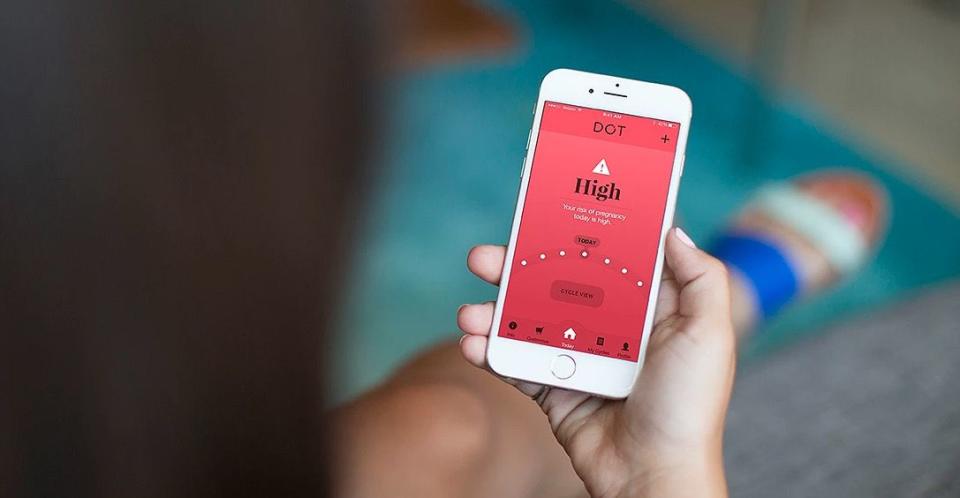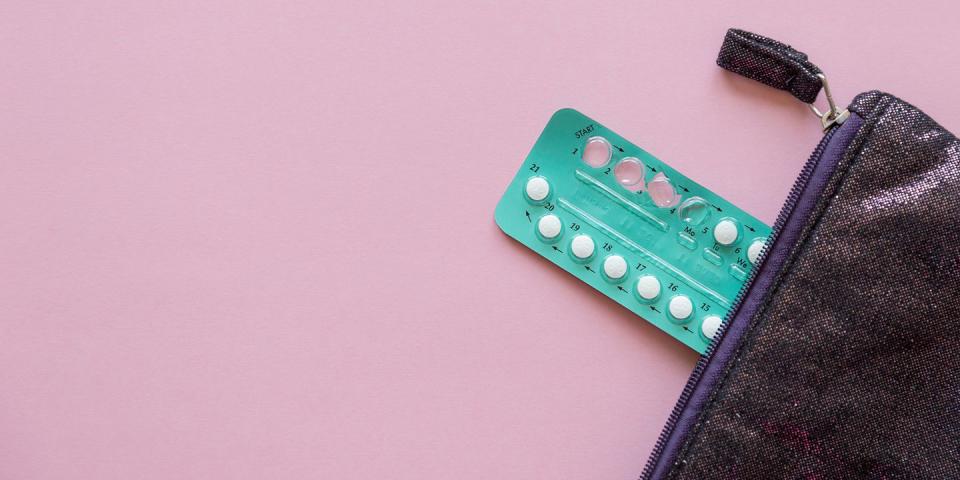The contraceptive app that could be more effective than the pill

New research has revealed that a contraceptive app, Dot (which stands for Dynamic Optimal Timing), may be just as effective - if not more so - than many more 'traditional' methods of contraception, like the pill.
With hormonal contraception falling out of favour with some women due to undesirable side effects or fears about long-term interference with the menstrual cycle, many are looking to other means of preventing pregnancy.
Dot is a fertility app which evaluates your pregnancy chances each day using only the length of your cycle. Users input their period start date, and Dot's algorithm (which considers a range of relevant factors) determines whether or not you should use protection when having sex on an individual daily basis.

It's a similar concept to the controversial Natural Cycles app, but while Natural Cycles requires users to take their temperature and input this data every day, Dot simply uses period length to work out whether each day is high or low risk where fertility is concerned.
And according to scientific research published in the European Journal for Contraception and Reproductive Health Care, it's a pretty effective method. The study monitored the menstrual period start dates and the daily sexual activity of 718 women who were using Dot to prevent pregnancy over a period of 18 months, and determined that when used perfectly, Dot had a 99% efficacy rate.
The contraceptive pill, when taken at the same time every day, also has a 99% rate of effectiveness - but the difference comes in when you consider the 'typical failure' rate. Women who take the pill imperfectly - so, at different times of the day for example - have a 91% chance the contraception will successfully prevent pregnancy.
Women who used Dot, however, were found to have a 95% chance of success when using it 'typically', or imperfectly, which indicates a higher level of success with the app.

If you're interested in trying Dot, you can expect the app to identify 16 days in your first cycle as 'high risk'. If you want to have sex during those days, you'll need to use a condom. As you continue using the app and you enter more data about your period start dates, the algorithm will learn more about your unique cycle and will eventually reduce the number of high risk fertility days down to 11–13.
Dot is available on both iOS and Android. Find out more about the app here.
Follow Cat on Twitter.
('You Might Also Like',)

